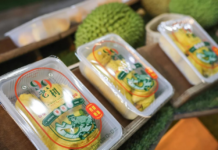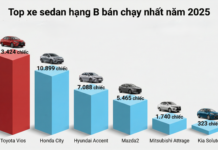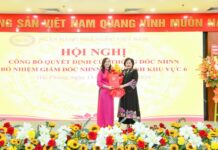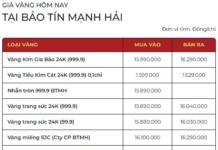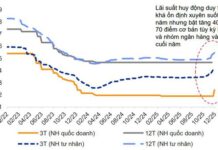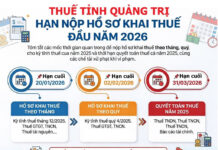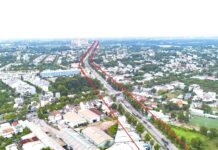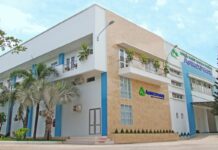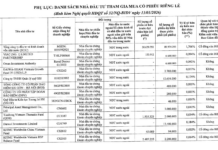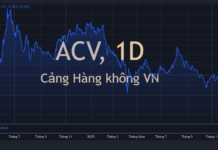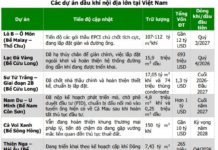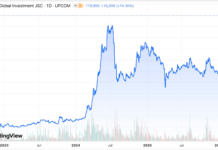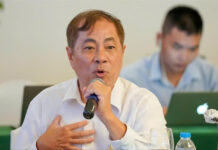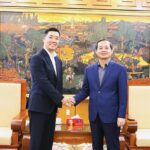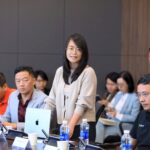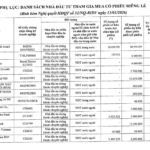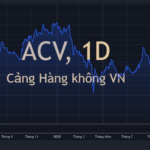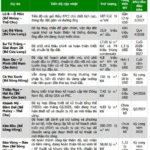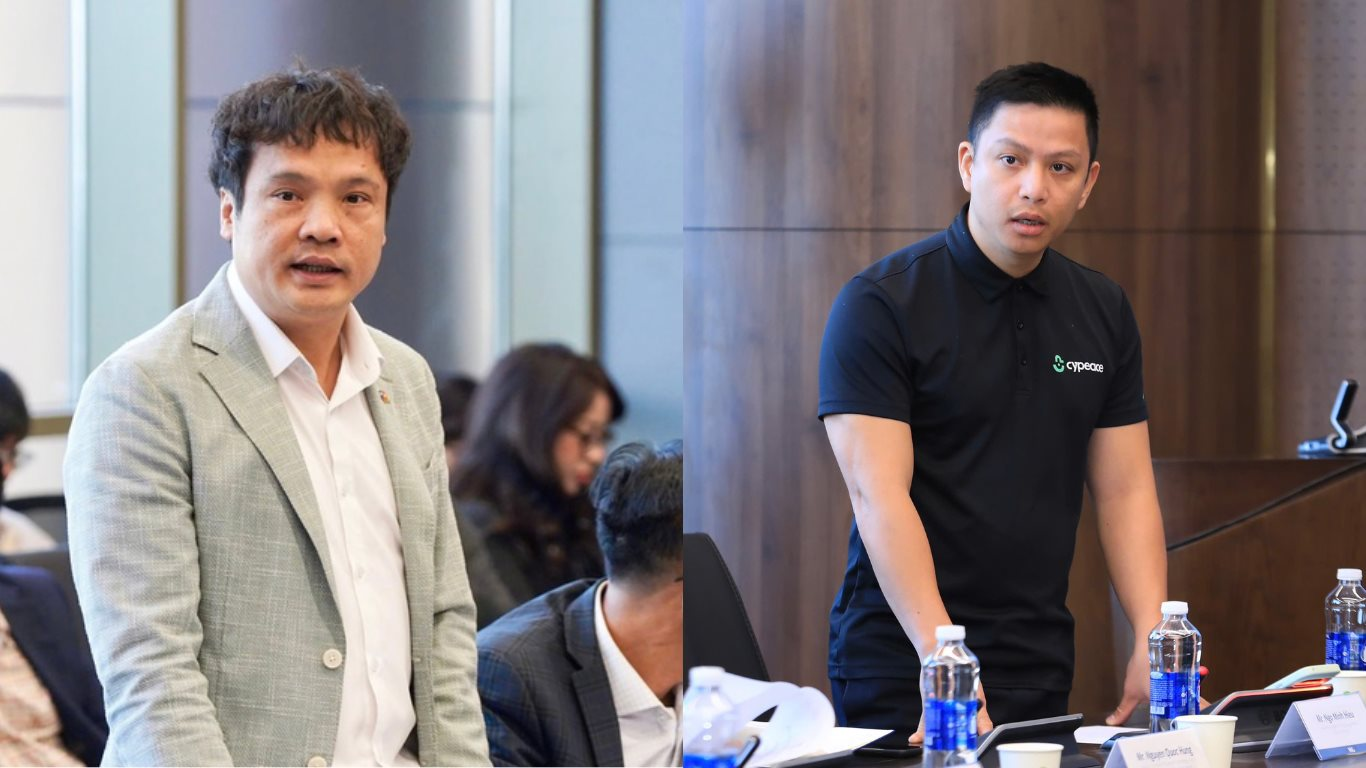
FPT Corporation CEO Nguyen Van Khoa and Hieu PC address the Deputy Prime Minister during the meeting. Photo: MH
This morning (November 26), at the National Innovation Center (NIC) in Hoa Lac, Deputy Prime Minister Nguyen Chi Dung chaired a meeting attended by leaders from the Ministries of Finance and Science and Technology, representatives from research institutes and universities, and nearly 70 experts from 22 countries, both in-person and online.
The Deputy Prime Minister directed the discussion to focus on a critical question:
What must Vietnam do to rapidly develop strategic technology sectors within the next 1–2 years?
He noted ongoing challenges in selecting major problems and designing robust programs, urging experts to propose practical, innovative solutions rather than general analyses.
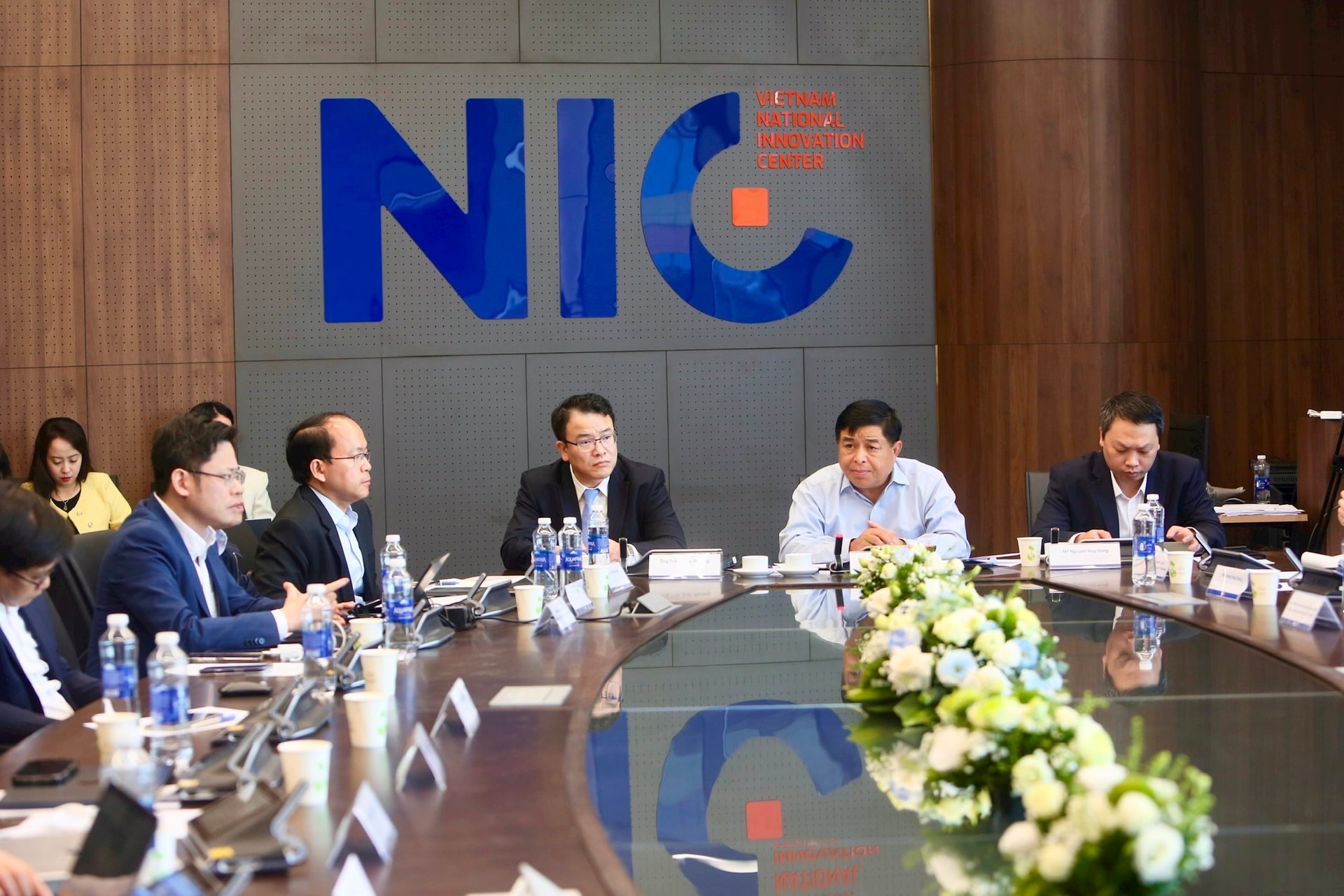
Deputy Prime Minister Nguyen Chi Dung chairs the meeting with the Innovation Network and Vietnamese experts on strategic technology development.
The Deputy Prime Minister emphasized the importance of attracting “Chief Engineers” and “Chief Architects” for national technology projects, viewing these roles as pivotal for leading foundational programs. The “Chief Engineer” will oversee coordination, resource integration, and strategic goal alignment, while the “Chief Architect” will design system architectures, establish technical standards, and guide core technology development. Together, these roles ensure long-term vision, high synchronization, and risk mitigation in project implementation.
Breakthrough Proposals for UAV Development
During the meeting, over 20 experts from 11 strategic technology fields discussed and proposed solutions to the government for advancing these sectors.
In aerospace and unmanned aerial vehicles (UAVs), Dr. Nguyen Xuan Mung, a professor at Sejong University (South Korea) and member of the VIN Network in Korea, shared insights into South Korea’s “low-altitude economy,” where UAVs, UAM, and eVTOL are thriving with investments from Hyundai, Korean Air, and Kakao Mobility. He suggested Vietnam focus on small UAVs and develop a national UAV ecosystem, low-altitude airspace management infrastructure, and a suitable testing policy framework.
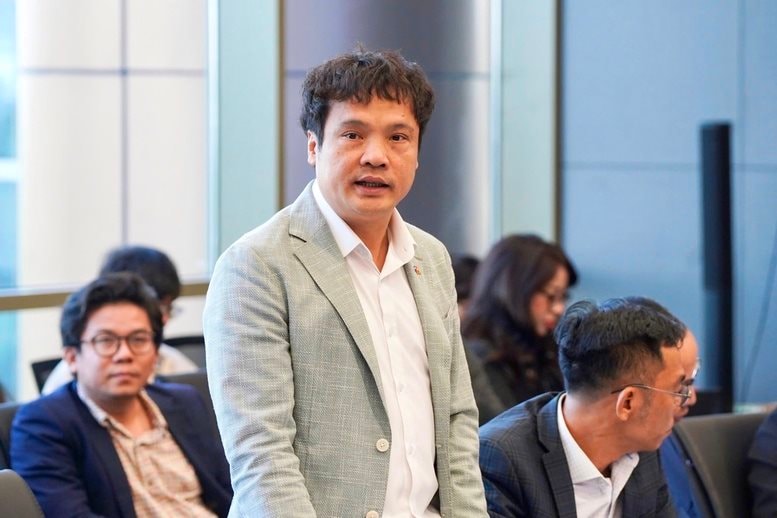
Nguyen Van Khoa, CEO of FPT Corporation, speaks at the meeting.
Nguyen Van Khoa, Chairman of the Vietnam Aerospace and Unmanned Aerial Vehicle Network (AUVS) and CEO of FPT Corporation, presented seven proposals and five recommendations to the government.
First, he proposed integrating UAV data into the National Database, assigning each UAV a unique identifier like a vehicle license plate, managed jointly by the Ministries of Defense, Transport, and Public Security. This ensures flight safety and transparent governance.
Second, he suggested establishing a National UAV Testing Corridor, initially in Hanoi, Quang Ninh, Binh Dinh, and Ho Chi Minh City. This corridor would enable testing applications such as autonomous flight, logistics, agricultural spraying, 3D mapping, and search and rescue.
“A flexible 72-hour licensing mechanism and a 50–120-meter altitude testing corridor will facilitate continuous research and innovation for businesses,” stated the FPT Corporation CEO.
Additional proposals included national UAV zoning, a national UAV certification center, developing a Vietnamese UAV business ecosystem, workforce development, and technology diplomacy.
Khoa emphasized the need for “Engineer in UAV & Robotics” programs in technical universities, standardized UAV pilot training following FAA (US) and JUIDA (Japan) standards, and strong industry-academia collaboration to provide high-quality talent.
Alongside these proposals, Khoa recommended the government focus on five key areas: developing the “National UAV Development Plan 2025–2030” led by the Ministry of Science and Technology; issuing a new UAV decree to replace Decree 36 (2008) and Decree 79 (2011); approving a national UAV sandbox; finalizing UAV zoning plans; and establishing national technical standards (QCVN) for UAVs from 2025–2030.
Hieu PC Proposes National Anti-Fraud and Cybercrime Center
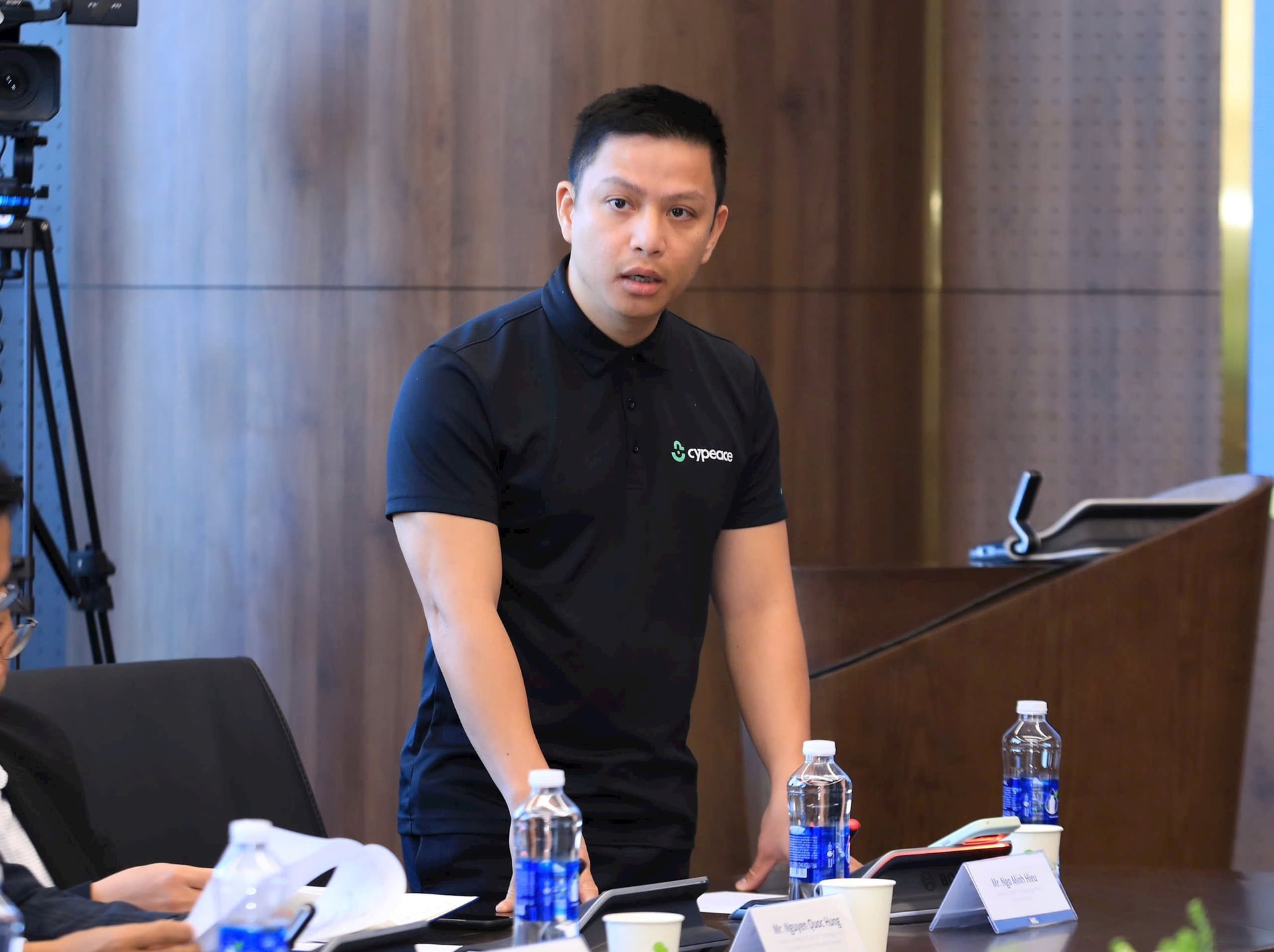
Ngo Minh Hieu (Hieu PC) stresses the need to protect citizens and businesses from cybercrime.
In cybersecurity, Ngo Minh Hieu (Hieu PC), Founder and Director of the Anti-Fraud Project, emphasized that to develop AI, digital finance, or govtech, Vietnam must first establish a secure and trustworthy digital environment.
“Cybercriminals now use AI and DeepFace technologies for cross-border scams, which are increasing.
Protecting citizens and businesses from these threats is our top priority,” Hieu PC stated.
Regarding AI data and infrastructure, Hieu noted the need for clean, open data and standardized infrastructure to develop Vietnamese language models and AI products.
“Without data and infrastructure, we cannot create our own core technology,” he asserted.
Hieu also highlighted the need for practical tech talent training: “AI and cybersecurity professionals must be trained using real-world scenarios, data, and problem-solving approaches, similar to advanced countries like Singapore and Israel.”
For quick implementation within 1–2 years, Hieu proposed establishing a National Anti-Fraud and Cybercrime Center, modeled after Singapore’s, to connect banking, telecom, social media, and investigative agencies for real-time risk alerts. He also suggested creating a safe data-sharing sandbox for businesses and research institutions to develop AI models and early warning systems, along with practical scholarships for AI and cybersecurity engineers.
Facilitating Strategic Technology Sector Development
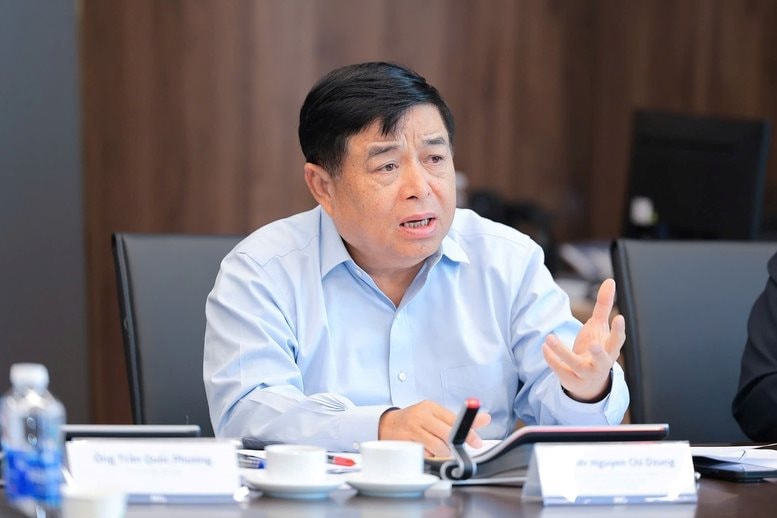
The Deputy Prime Minister addresses businesses and experts. Photo: VGP
After hearing the discussions, the Deputy Prime Minister instructed relevant parties to focus on several issues. The Ministry of Finance will consolidate and propose breakthrough mechanisms to mobilize and allocate resources for strategic technology sectors.
Priority will be given to developing NIC as the core of the innovation ecosystem, with a network of passionate experts to tackle national challenges. Efforts will center on creating business incubators and talent development programs at NIC for sectors like semiconductors, AI, quantum computing, UAVs, cybersecurity, robotics, and automation, attracting global tech leaders to establish R&D centers in Vietnam.
Additionally, special financial mechanisms for strategic technology R&D will be explored, accepting research risks and investing in shared laboratories, equipment, and training facilities to support universities and research institutes.
The Deputy Prime Minister expressed confidence: “The Innovation Network and technology experts will continue to grow, becoming a vital bridge for Vietnam’s transition to a knowledge- and innovation-driven economy.”
Established in 2018, the Vietnam Innovation Network now operates in 22 countries with over 2,000 members, including experts, scientists, chief engineers, and chief architects in key industries. It implements directives from Resolutions 57 and 68 of the Politburo.
Alongside 10 international innovation networks, NIC supports five sector-specific networks to collaborate with universities, research institutes, businesses, and the National Data Center in solving national challenges.
SHB: Dual Momentum Fueled by Capital Expansion Strategy and Foreign Investment Opportunities
Our upcoming capital increase strategy is poised to propel SHB into the top 4 private banks by charter capital, solidifying our competitive edge through enhanced financial strength.
South Korea Invests Over $15.7 Billion in Hanoi’s Neighboring Province, with One Company Accounting for 70% of Total Capital, Expanding Production Further
As businesses forge ahead with their expansion strategies in Vietnam, the focus on scaling production capabilities has become paramount. This pivotal move not only underscores a commitment to growth but also positions companies to capitalize on the burgeoning opportunities within the Vietnamese market. By strategically enhancing production, enterprises aim to meet the escalating demand, optimize operational efficiency, and solidify their competitive edge in this dynamic economic landscape.

